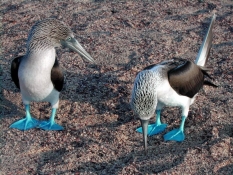Brian's
Class Materials- FALL 2010 - SEYS 562
Queens
College/CUNY
Education Unit
Fall 2010
Science Content Recommendations from NCATE and NSTA
| Elementary - generalist | Elementary - middle | All Secondary | Secondary - Biology | Secondary - Chemistry | Secondary - Earth, Space | Secondary - Physics |
C.2. Recommendations for Teachers of Biology
C.2.a. Core Competencies . All teachers of biology should be prepared to lead students to understand the unifying concepts required of all teachers of science, and should in addition be prepared to lead students to understand:
- Life processes in living systems including organization of matter and energy.
- Similarities and differences among animals, plants, fungi, microorganisms, and viruses.
- Principles and practices of biological classification.
- Scientific theory and principles of biological evolution.
- Ecological systems including the interrelationships and dependencies of organisms with each other and their environments.
- Population dynamics and the impact of population on its environment.
- General concepts of genetics and heredity.
- Organization and functions of cells and multicellular systems.
- Behavior of organisms and their relationships to social systems.
- Regulation of biological systems including homeostatic mechanisms.
- Fundamental processes of modeling and investigating in the biological sciences.
- Applications of biology in environmental quality and in personal and community health.
C.2.b. Advanced Competencies . In addition to these core competencies, t eachers of biology as a primary field should be prepared to effectively lead students to understand:
- Bioenergetics including major biochemical pathways.
- Biochemical interactions of organisms with their environments.
- Molecular genetics and heredity and mechanisms of genetic modification.
- Molecular basis for evolutionary theory and classification.
- Causes, characteristics and avoidance of viral, bacterial, and parasitic diseases.
- Issues related to living systems such as genetic modification, uses of biotechnology, cloning, and pollution from farming.
- Historical development and perspectives in biology including contributions of significant figures and underrepresented groups, and the evolution of theories in biology.
- How to design, conduct, and report research in biology.
- Applications of biology and biotechnology in society, business, industry, and health fields.
C.2.c. Supporting Competencies . All teachers of biology should also be prepared to effectively apply concepts from other sciences and mathematics to the teaching of biology including basic concepts of:
- Chemistry, including general chemistry and biochemistry with basic laboratory techniques.
- Physics including light, sound, optics, electricity, energy and order, magnetism, and thermodynamics.
- Earth and space sciences including energy and geochemical cycles, climate, oceans, weather, natural resources, and changes in the Earth.
- Mathematics, including probability and statistics.
